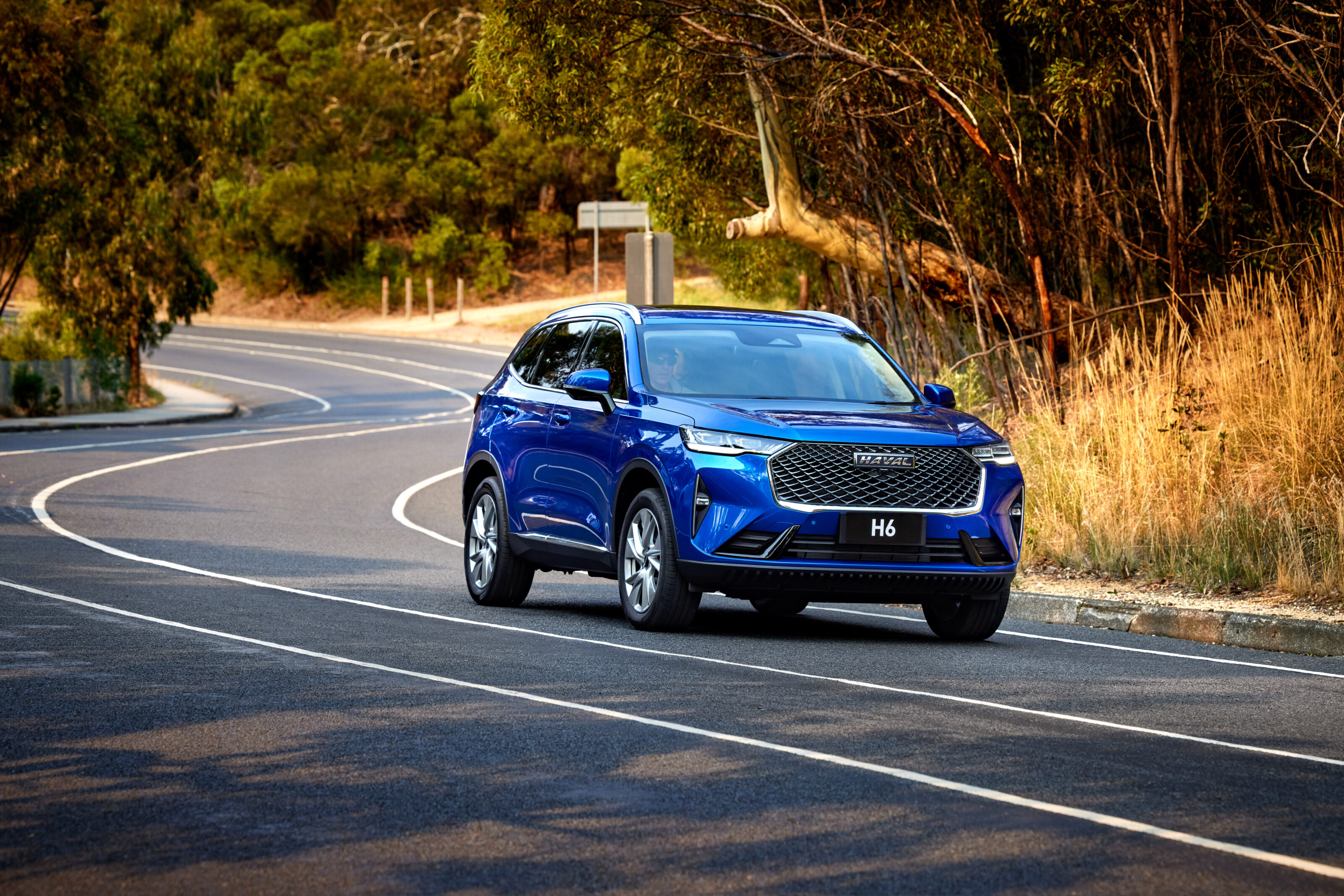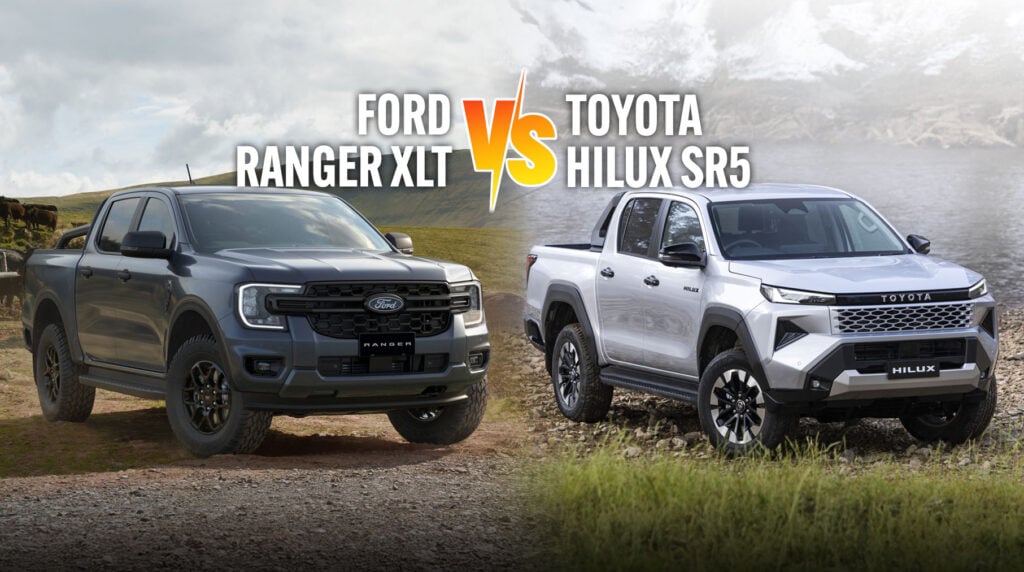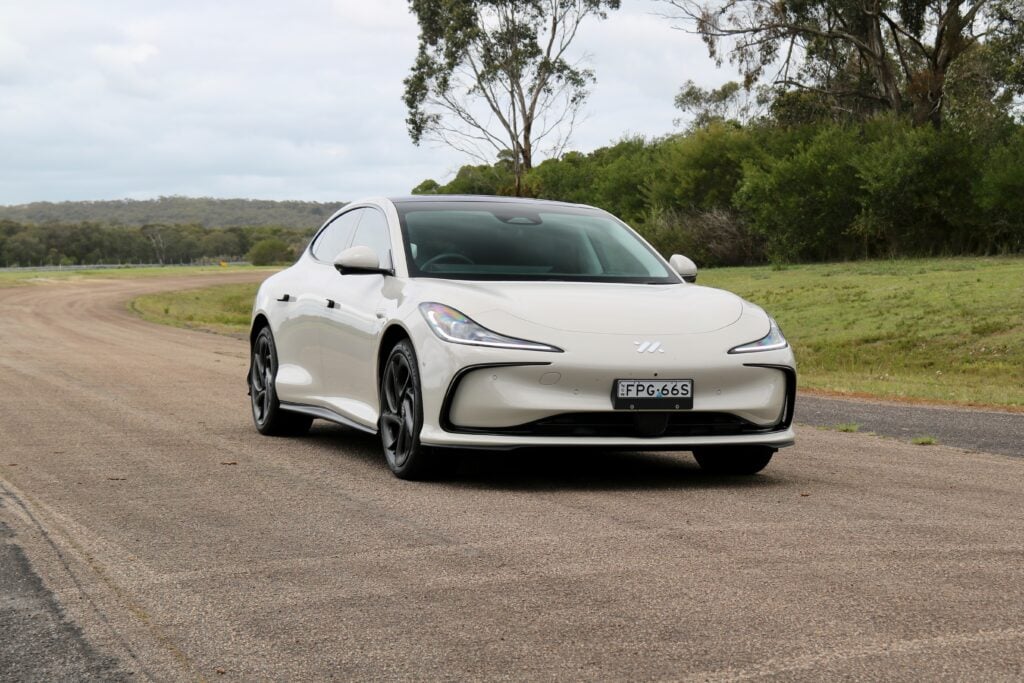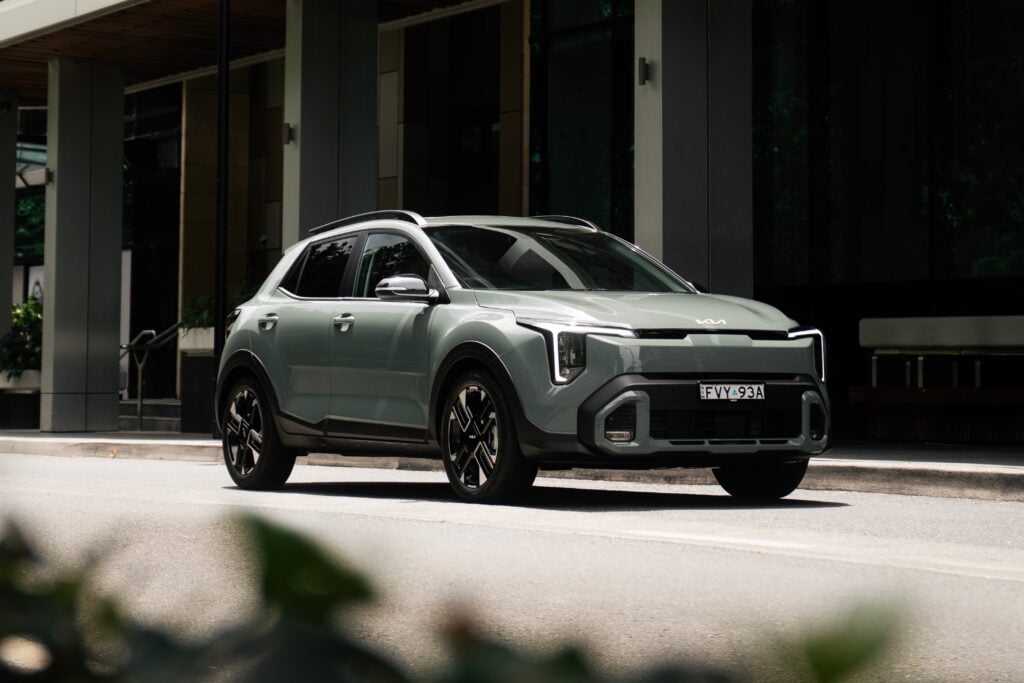Score breakdown
Things we like
- Unbeatable price
- Generous equipment and tech
- Sharp design inside and out
Not so much
- Scrappy dynamics
- Inconsistent traction control
- Unsupportive front seats
If mimicry is the greatest form of flattery then Elon Musk will adore the 2021 Haval H6. The Chinese-made mid-sized SUV is not a high-performance, long-range EV, nor is it the product of a daring tech startup. But it doesn’t take many minutes aboard the new H6 to realise its maker took a long, hard look at the technological approach of Tesla when benchmarking its new model.
Launched as a more premium line in the Great Wall family, Haval quickly rose to dominance selling more than 800,000 cars in its native market during 2017. Perhaps unsurprisingly, as a relatively unknown marque, the brand wasn’t such a hit in Australia when the company expanded into the local market in 2015.
But value and price are strong lures for Aussie buyers and the cheap Chinese challengers including MG, Great Wall (GWM) and Haval are starting to gain traction and draw attention. You too may have had your interest piqued by one of the emerging brands that appear to offer an unrivaled amount kit for the cash.
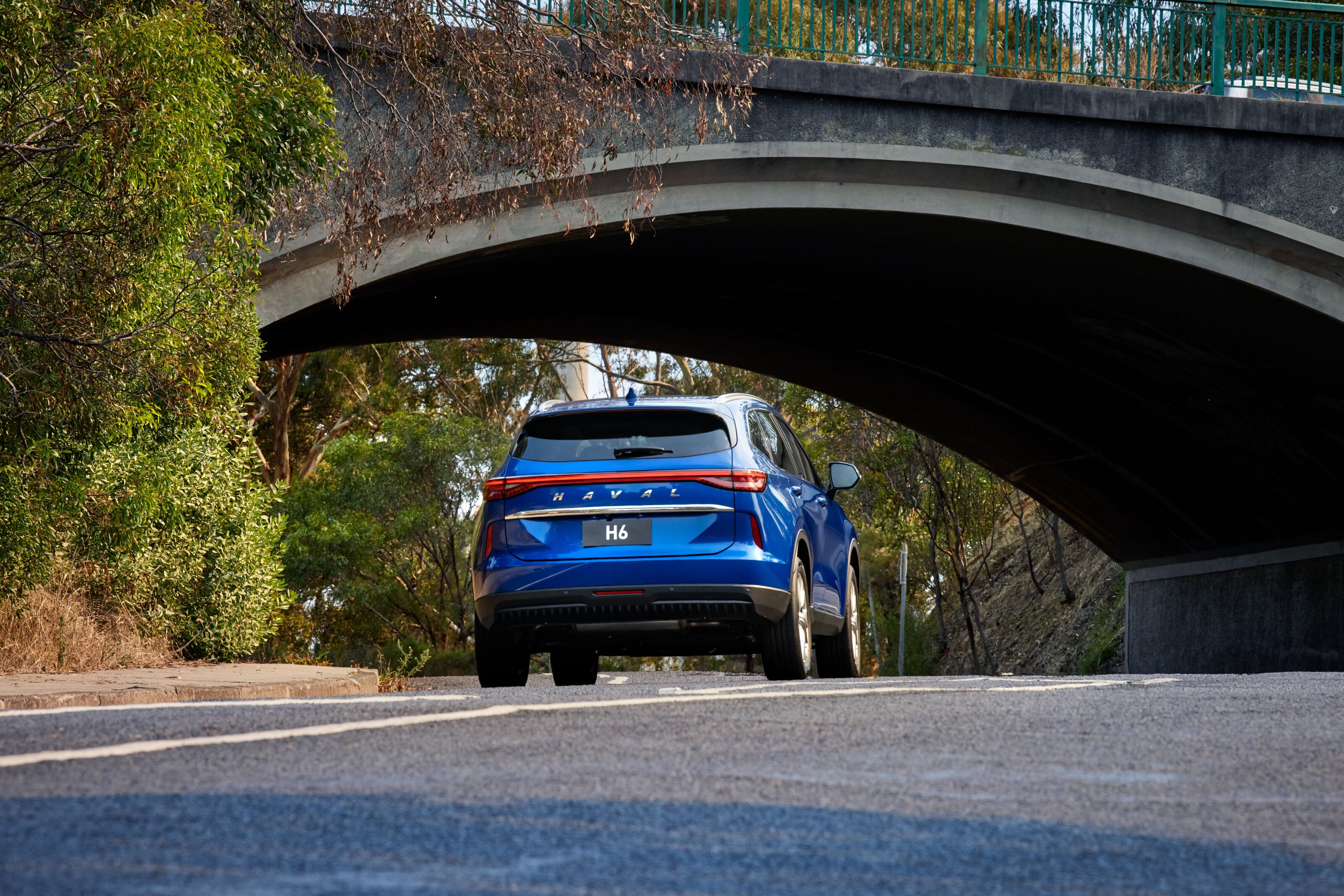
In the sometimes treacherous used-car market, it pays to remember the old adage that if something appears to be too good to be true then it most likely is, but does the same rule of thumb necessarily translate to the world of new car retail?
That question neatly takes us back to the 2021 Haval H6. Step inside its spacious cabin, slide over the generous, leather-look seats and hit the keyless start button and you’re met with a sea of high-resolution displays. The central 10.3-inch screen is sharp with attractive graphics and offers access to an impressive array of technology and applications. The second 10.3-inch screen forms the driver’s instrument cluster and features a digital speedo, tachometer and even a real-time vehicle/lane position feature that’s very similar to Tesla’s innovation.
The result is an incredibly clean and tidy interior and, with just seven switches on the entire centre portion of the dashboard, the Tesla similarities continue. Actually, one or two functions – such as seat heaters – are buried a little too deeply in digital menus and we’d prefer just a handful more buttons even if it did partly spoil the spartan layout. As our test car was the mid-range Lux H6 variant, in addition to heated seats we were treated to electric seat adjustment for the driver, a leather steering wheel, keyless entry, metallic paint, 18-inch alloy wheels, and Apple CarPlay.
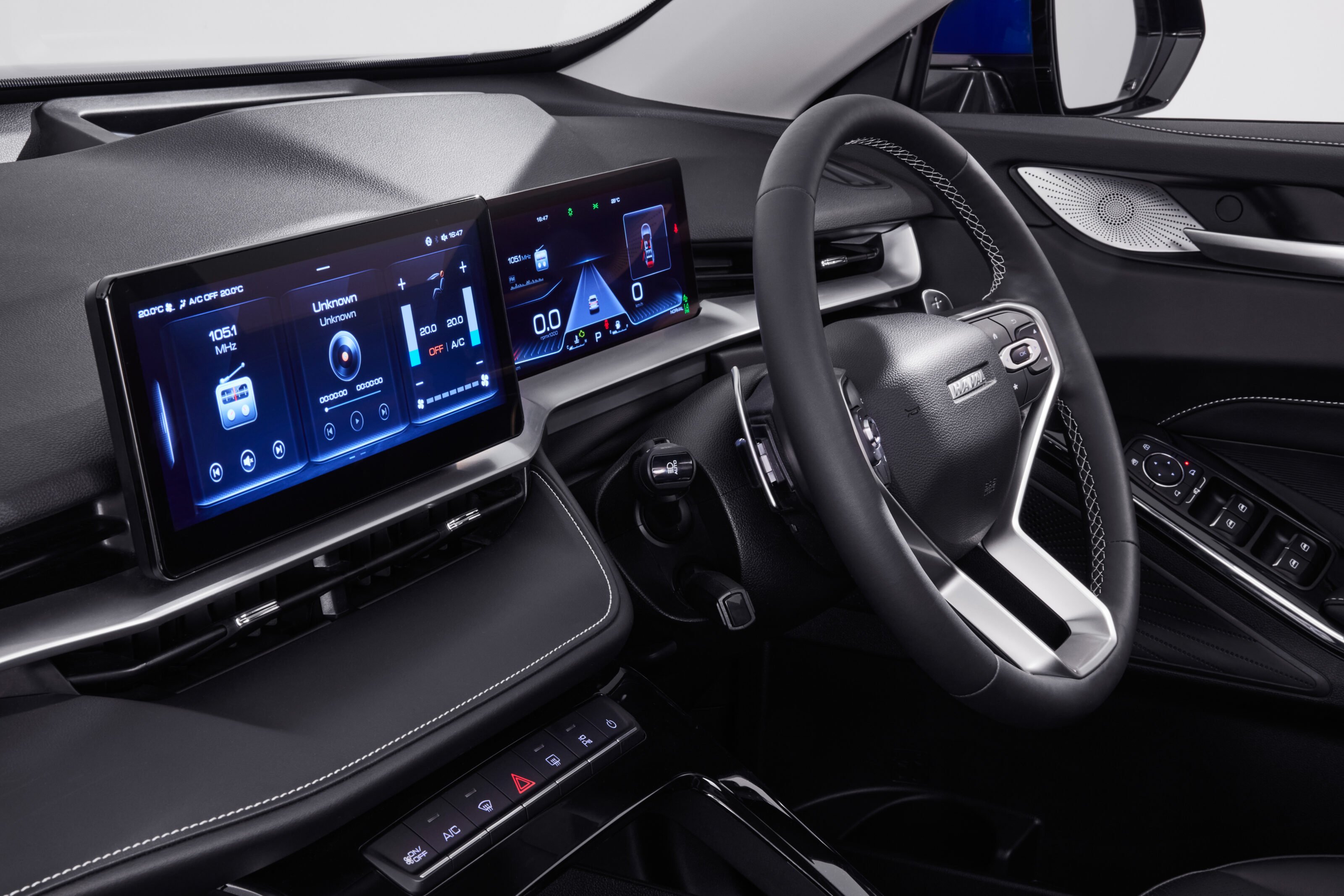
Value and price are strong lures for Aussie buyers and the cheap Chinese challengers including MG, Great Wall (GWM) and Haval are starting to gain traction and draw attention
And that’s all before you get to the impressive and extensive safety and driver assistance suite. All H6s get autonomous emergency braking with pedestrian and cyclist detection, lane-keep assist, blind-spot and driver fatigue monitoring, speed sign recognition, a reversing camera and rear parking radar.
As this is the mid-spec Lux, the list goes on with a full 360-degree camera system and adaptive cruise control with traffic-jam assistance. Impressed? Wait until we get to the price.
To get behind the wheel of a mid-range Hyundai Tucson or Mazda CX-5 you would need to outlay about $40,000 to $45,000 before on-road costs, and there are plenty of other similarly priced options in the mid-sized market you could use as an example.
The H6, though? It kicks off from an almost suspicious $30,990 driveaway while the Lux is just $33,990 driveway (the range-topping H6 Ultra starts at $36,990 driveaway for the front-drive version and is $38,990 driveaway with all-wheel-drive).
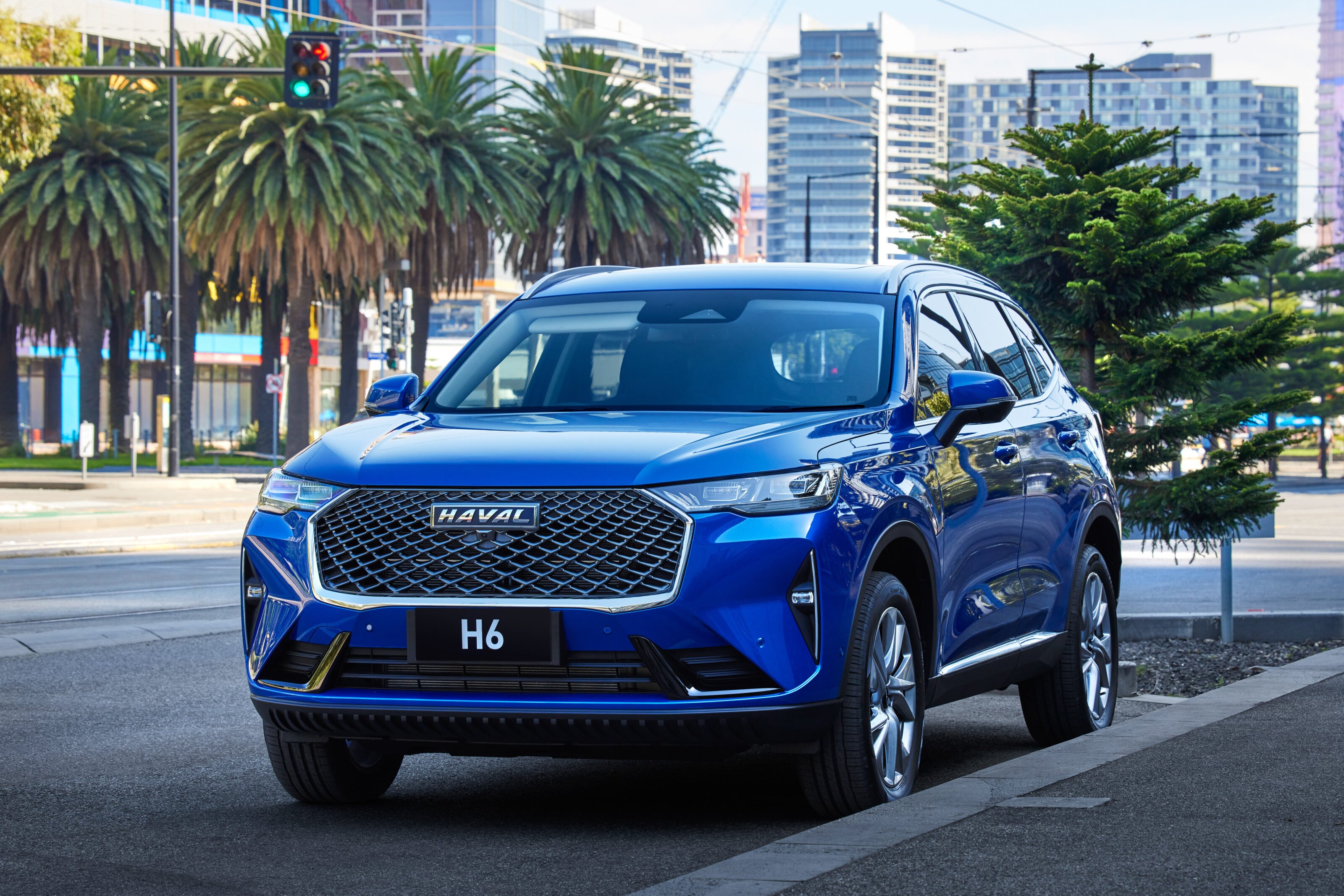
But anyway, you can find out all of the above for yourself by picking up a brochure or browsing Haval’s website. What none of it will tell you, however, is how it all translates into practice. And that’s where the value equation doesn’t stack up quite as it first appears on paper.
Under the bonnet of the H6 is a turbocharged 2.0-litre petrol four-cylinder that pumps out 150kW and 350Nm – another feature that’s rare in this price bracket – and it’s bolted to a seven-speed dual-clutch automatic transmission.
For such a reasonably priced machine, Haval’s in-house-developed engine is surprisingly refined and lends a decent dose of performance to the H6. Off the mark acceleration is strong and it’ll rev happily to the redline. That said, torque production and prevalence is the turbo donk’s more useful attribute.
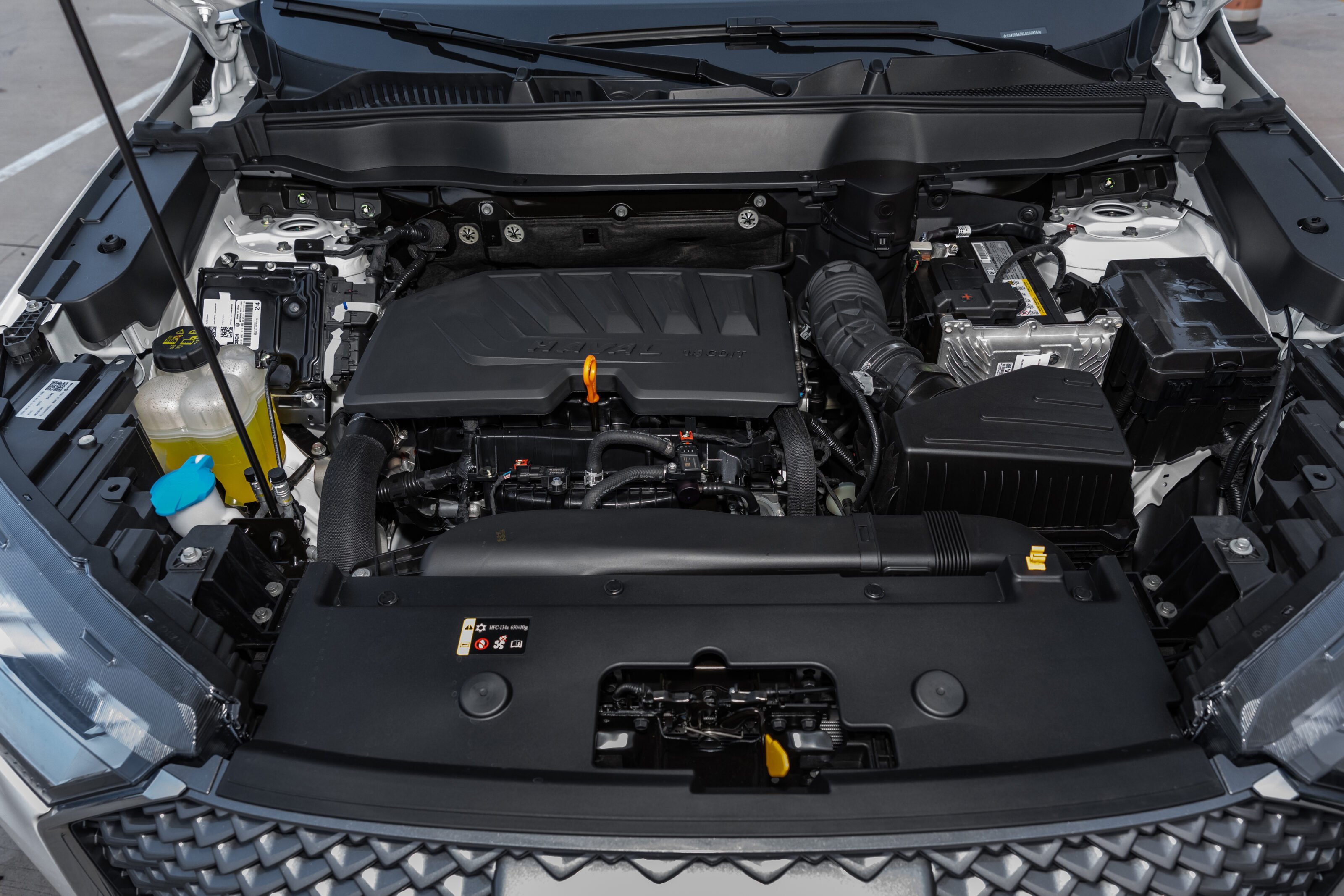
Its DCT pairing is a pretty respectable match, with the typical urgency and fast cog-swaps associated with this type of gearbox. Unlike others, the Haval version doesn’t overthink its transmission program, dispatching regular driving duties without issue.
Unfortunately the same cannot be said for the traction control map, which allows too much wheel slip under harder acceleration before reneging on its decision and abruptly shutting down the boilers. The effect is most off-putting in corners and exacerbated by camber and wet weather when the whole system renders smooth driving difficult.
Tyre choice is not to blame, with good lateral grip provided by the Hankook Ventus S1 Evo rubber wrapping the 18-inch alloys.
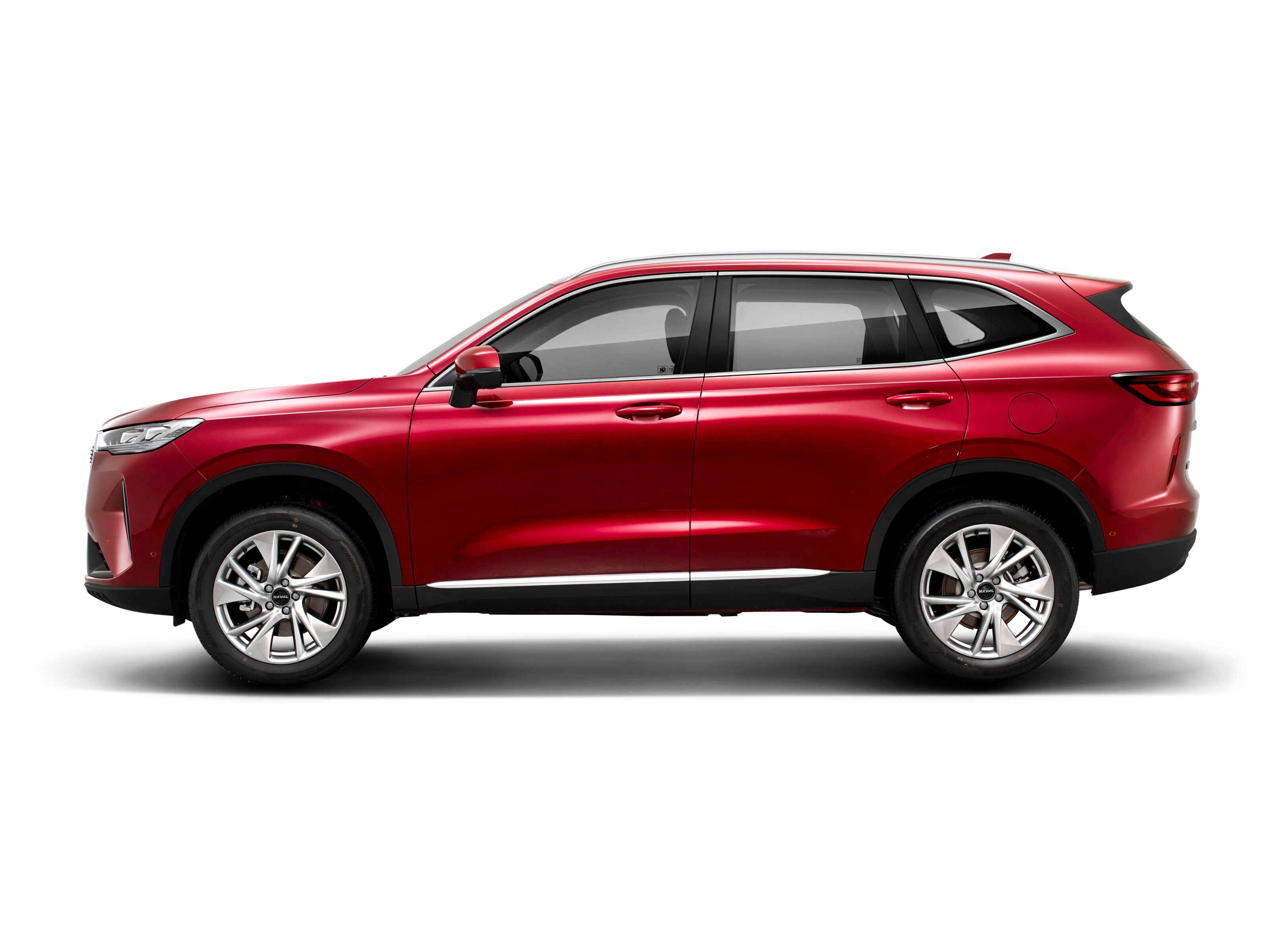
The effect would most likely be eliminated by the range-topping Ultra 4WD that uses a BorgWarner Haldex-type all-wheel-drive system. But the Lux and Premium versions are limited to front-drive only. Bizarrely, all versions including the two-wheel-drive H6 have a hill descent control feature that perhaps invites an overly optimistic belief in its all-terrain ability, but we would like to be proved wrong on that. I’d even put my hand up for the test.
Underpinning the 2021 H6 is Haval’s new global platform, which has stripped weight compared with the previous model as well as increasing stiffness and crash safety. The changes definitely translate to a more lively nature when the H6 is piloted in a more enthusiastic manner.
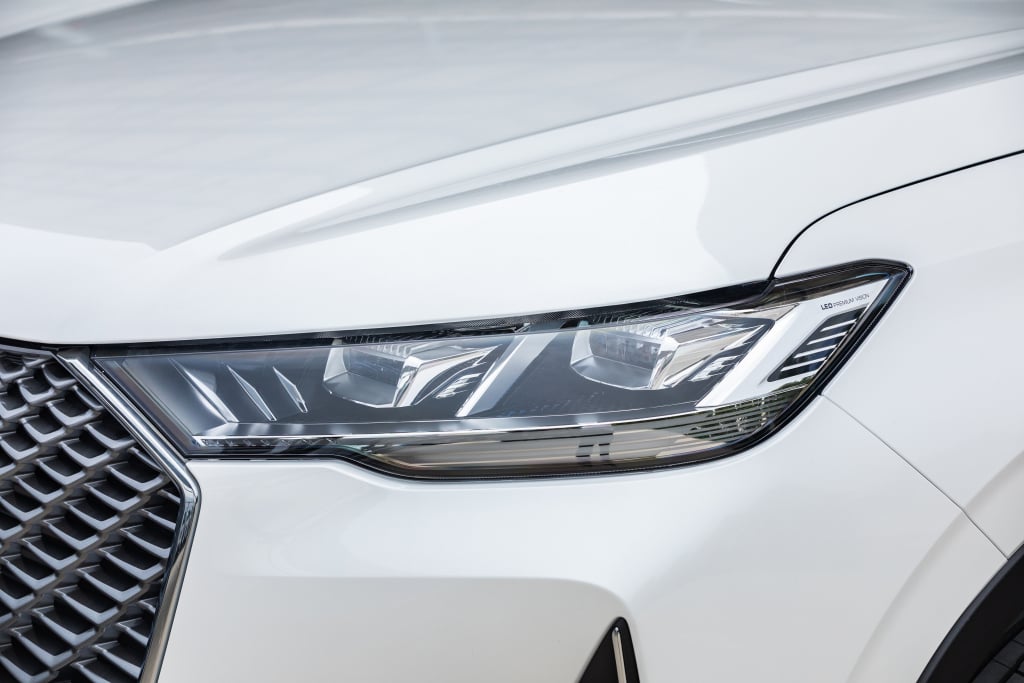
The steering is direct with a sharp turn-in but has a weird false feeling and, while the body control is generally composed for normal driving, the H6 rolls onto its shoulder with little provocation and highlights a lack of anti-roll stiffness.
For more sedate driving, the H6 does better. Over well-maintained roads with just a few big dips and bumps, primary ride and comfort levels are good, the cabin is well-insulated for sound and the lane-keeping technology is, once again, very reminiscent of Tesla’s with the system willing to take control of steering duties for a surprising range of roads and driving types.
There are a number of unfortunate elements that detract from the initial positive first impressions cast by the interior. Firstly is the aroma. It’s hard to imagine another car that has a more acrid and noticeable new-car smell – a scent that many enjoy as part of the new car shopping experience. In the Haval, though, it’s overwhelming to the point we opened the windows perhaps more often than normal.
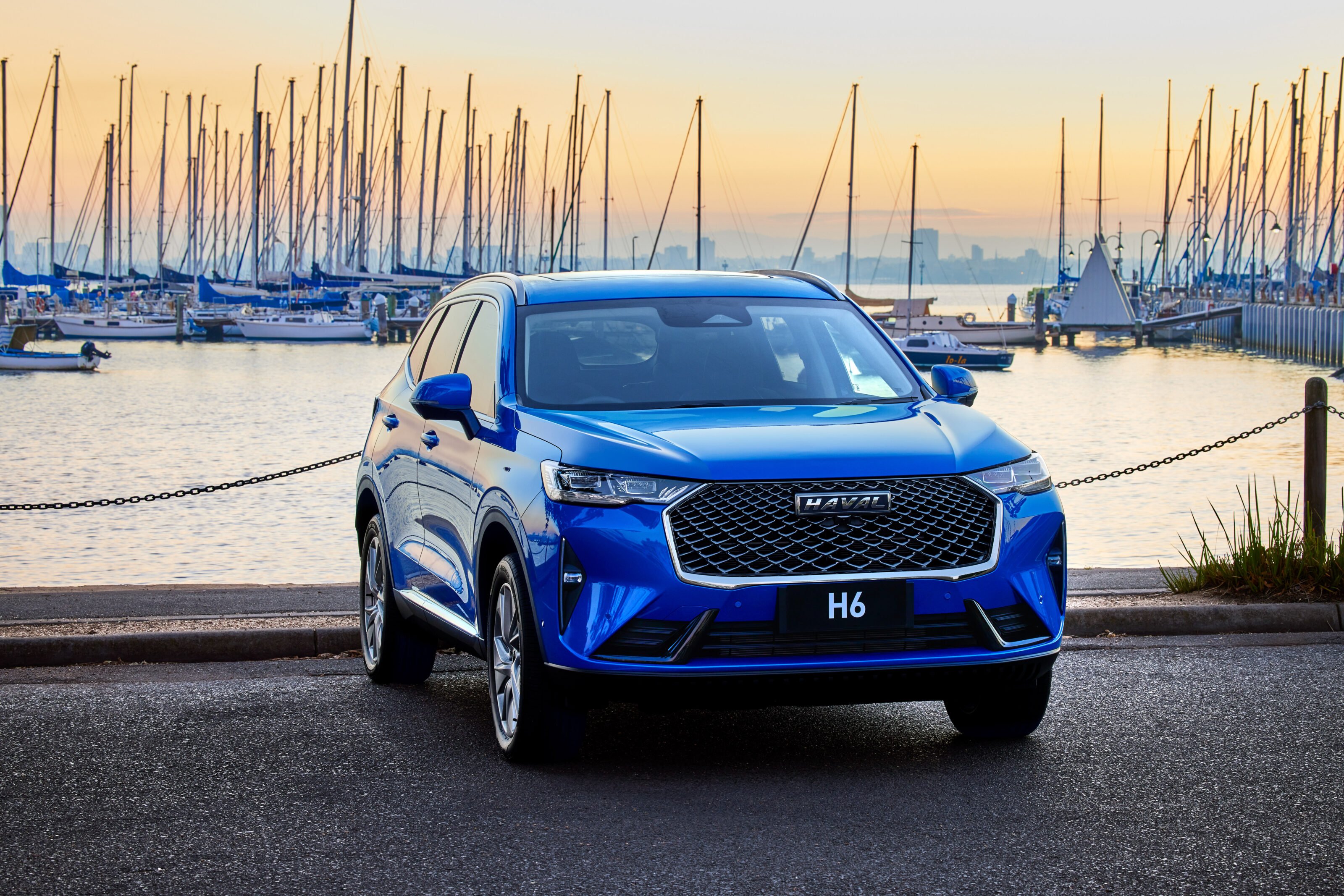
And while the front seats appear plush and supportive, a lack of tilt adjustment and ergonomic refinement allowed the odd cramp and ache to creep in, even during relatively brief trips. Road surfaces with lots of small imperfections also seem to get the suspension – and therefore occupants – a bit agitated.
That aside, the H6’s cabin is a pleasant and practical place to spend some time. Space in the second row is huge for a mid-sized SUV and straddles the line into the large segment. It might not have seven seats, but the Haval feels like it could compete for volume with the Hyundai Santa Fe that technically fights in the large SUV realm.
At the tail end, the H6 offers a big 600-litre boot that can expand to 1485L with the rear seats folded away. No full-size spare is offered, with a slender space-saver hidden under the adjustable boot floor.
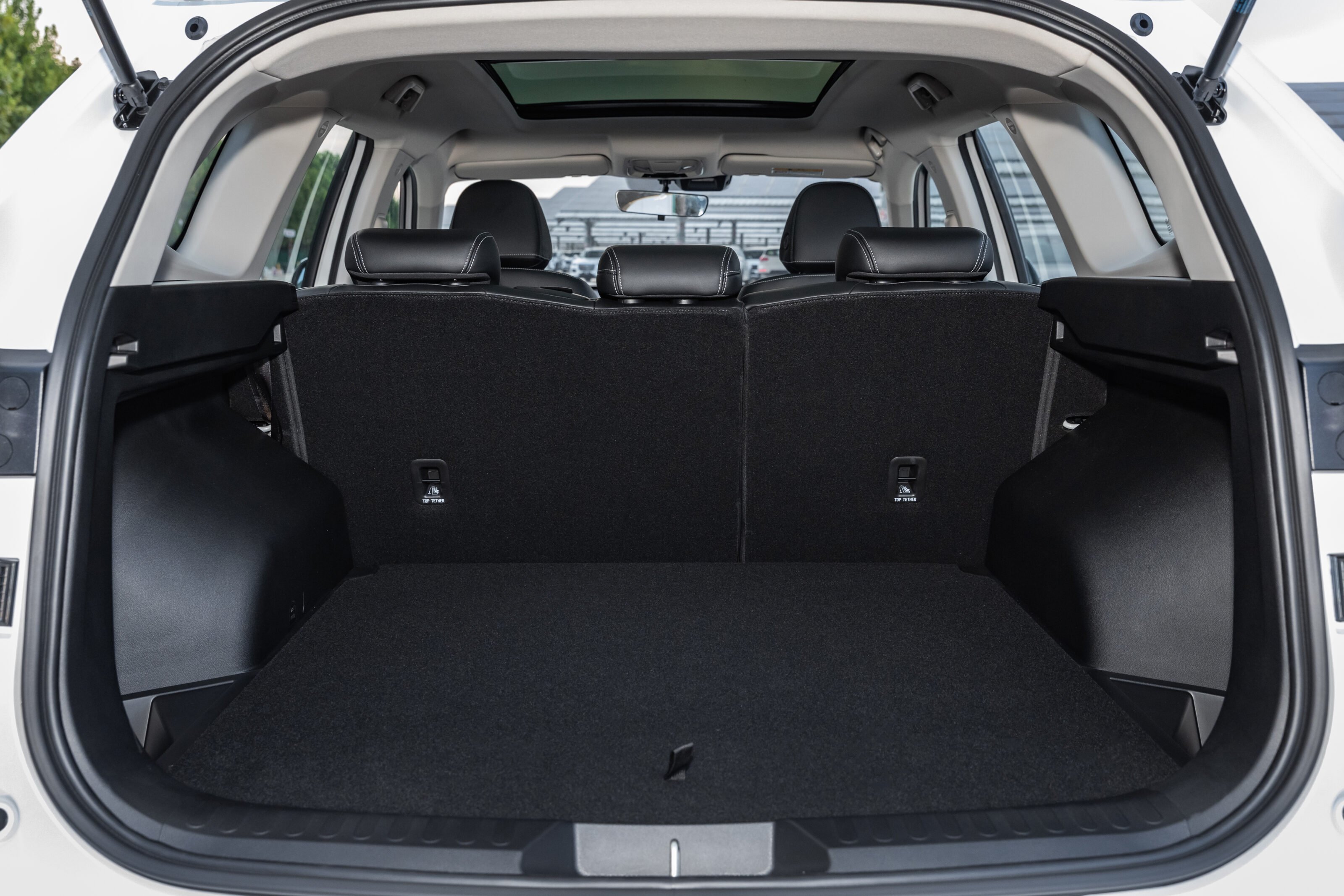
But for all the H6’s inclusions and generous standard equipment, a few notable omissions are worth considering. Apple CarPlay is the only smartphone mirroring supported, with Android phones left out in the cold and there’s no native navigation, requiring owners to use their iPhone navigation application if they want to know where they are going. Samsung fans, therefore, are more likely to get lost.
Generally speaking though, the Haval is tech-heavy and discovering the various unique approaches to electronic systems is a delight. Notification sounds are polite and unobtrusive, including the grandfather clock indicator report and the interaction with touchscreens and menus is intuitive and well thought out.
Haval has clearly invested a serious amount of development into the technology offered in the new H6, with systematic ergonomics that are easier to compare with smartphone and tablet consumer electronics than something that finds its roots in the automotive realm. A lot like Tesla, you might say.
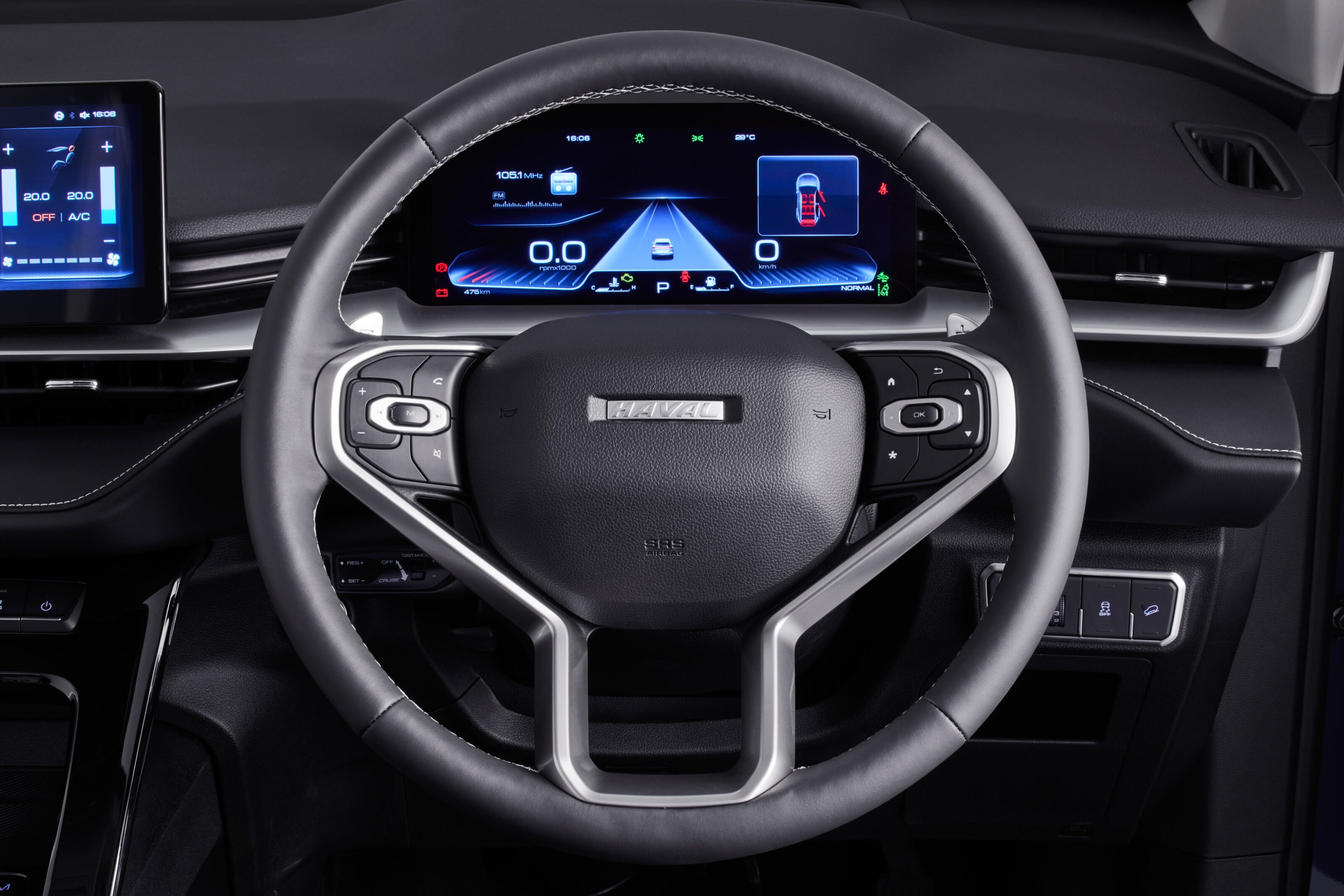
The company will even throw in a Kia-matching seven-year warranty as an extra statement of intent. Add to that an equipment and technology value proposition that’s impossible to ignore or deny, and as an exercise in box-ticking and bang-for-buck, the H6 is hard to beat.
But it simply can’t compete as strongly when it comes to dynamics and a more traditional appraisal. Against vehicles that are chassis-tuned for local roads and conditions, brands that have a proven track record on local dirt and local presences that reach back decades, Haval has a huge challenge on its hands.
That’s not to say the H6 isn’t worth a look because it certainly is – especially if you’re looking for your budget to go further – but, just as it’s important to look beyond a badge, make sure you also delve deeper than the brochure.
Score breakdown
Things we like
- Unbeatable price
- Generous equipment and tech
- Sharp design inside and out
Not so much
- Scrappy dynamics
- Inconsistent traction control
- Unsupportive front seats


